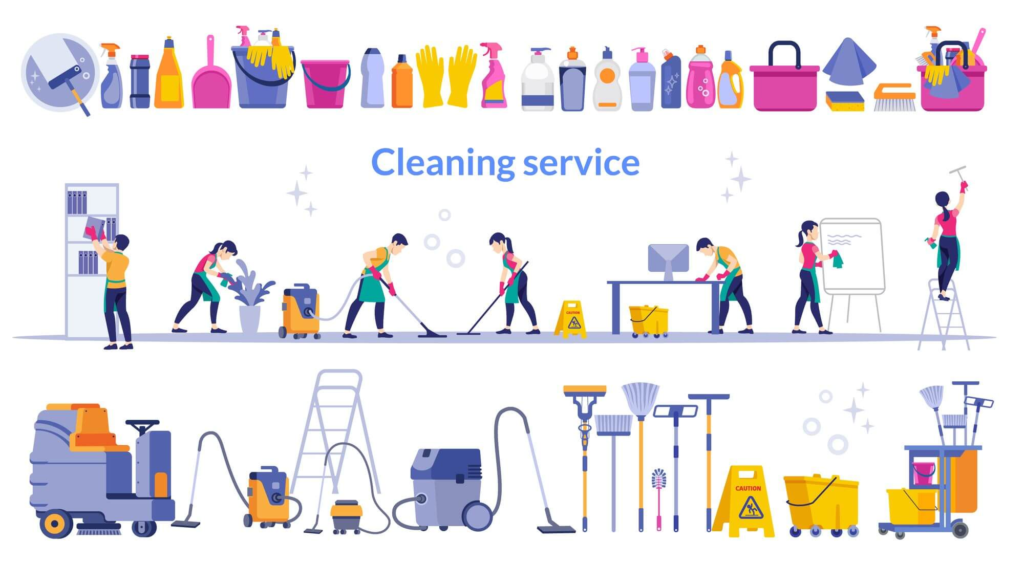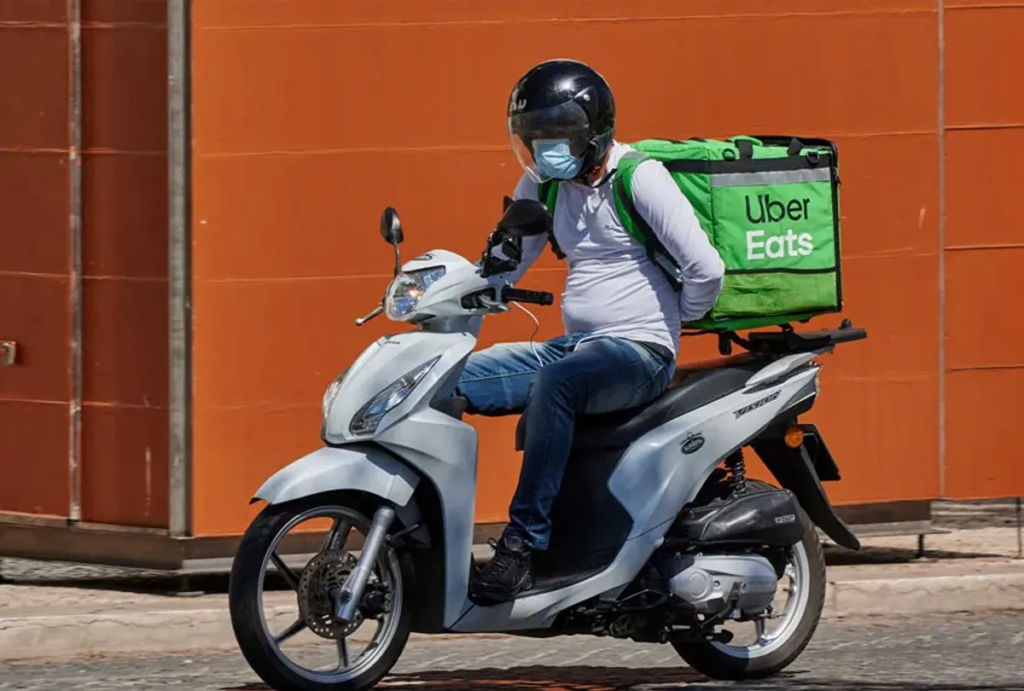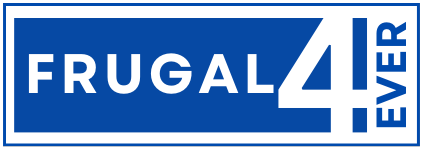Small-town residents seek passive income to achieve financial independence. Local lead generation, online courses, Airbnb hosting, vending machine businesses, and vehicle rentals boost profits without moving. These projects allow people to use their talents and assets to improve their finances while staying in their hometowns. This book examines the advantages and drawbacks of each passive income option, assessing its viability and possible problems. In this article we will explore about Small Towns Side Hustle.
What Is Passive Income?
Passive income is earned with little effort or engagement after initial labor or investment. It delivers steady income without direct involvement. Examples include rental income, dividends, investment interest, affiliate marketing, and royalties. Real estate investments, stock dividends, web enterprises, and creative initiatives are passive income sources. The idea is to provide a stable income without constant supervision, even if the initial setup may take time, money, or skill. Passive income may augment job income and lead to financial independence.
The Top 5 Passive Income Sources In Small Towns Side Hustle
1. Local Lead-generating Services

Start a lead-generating firm in a small town or significant metropolis. You can help tiny local small businesses increase traffic and internet exposure. I've been in the lead generation since 2014, making up to $60k monthly. Clients pay me gratefully after assisting them in generating organic search engine leads. Though difficult, doing this effectively might keep your client's company website on top for years. An excellent passive income method, this may provide a constant income.
Pros
- Profitable industry lead generating. The US lead generation business is estimated to reach $3.2 billion this year. Companies will pay high bucks for search engine shows. Because more organic traffic means more leads and revenues.
- Local SEO is more straightforward. Local lead generation doesn't compete with only a few global websites. You concentrate on ranking geographic-specific keywords for customers, which speeds results. On average, you compete with 20 firms in a town.
- Digital properties are under your control. The rank and rent concept involves building keyword-focused websites, ranking them on Google, and selling leads to specialty small companies. If a firm stops paying, you may sell your websites and leads to competitors.
- Your rating is easy to maintain. Once a site ranks high in search engine results, it's easy to remain there. Ranking may last years with little effort. Your customers get infinite free exposure, and you may generate passive revenue by renting digital assets.
- Moving isn't optional to grow to other small places or big cities. Even in a little California town, you can own and operate digital real estate in Detroit, Milwaukee, and New York.
Cons
- You'll pay everything upfront. Building and ranking your website must be paid before you can profit. Websites cost roughly $500. It's a good investment since it may benefit 85% to 90%, or $500 to $2,000 monthly.
- Finding interested company owners takes a lot of work. If you're new, company owners may be reluctant to recruit you. You can overcome this if you can produce small business owners. By building traffic, you show you can have quicker and more straightforward traffic than digital marketing professionals.
- Time-consuming. Local lead creation, particularly with keywords, requires patience. If you want to rank quickly, choose lucrative niches. Thus, earlier research matters. You may also outsource service site writing.
- Getting leads takes skill. For efficient lead generation, you must master SEO. It takes time to learn these abilities; thus, the more excellent entry barrier keeps this market less saturated. Our complete lead gen coaching program can aid learners again.
2. Making An Online Class

Creating and marketing an online course may provide passive revenue. Course creators may earn $1,000–$10,000 monthly when done well. Popular sites for selling and promoting courses include:
Pros
- Coursework may be done in your leisure time. You may construct your course in your leisure time at home. Working with a laptop and ideas can only be done with an office.
- Creating a course is cheap. Mostly, you'll only have to start classes. Other than that, you may need software or a graphic designer.
- Excellent additional income. Each sale of your online course lets you generate money while you sleep.
- Expand your audience. Online courses may reach worldwide audiences. You may sell your course to local and international students regardless of location.
- Not every time, teach the course. You can offer an online course as leveraged revenue without teaching it every time someone takes it. You made money from the material without spending extra time.
Cons
- Marketing your course is tricky. Your course may generate passive revenue, but you can't sit back and wait. It would help if you worked hard to stand out. You must promote your course constantly since there are hundreds of comparable ones. Social networking may help you market your course and gain attention.
- Advertising is likely. Besides free social media tools, advertising is an excellent way to promote your course to your target market.
- Tough competition. Online courses abound. Reaching your target market might be easier if you don't have a following.
- Your course may bore some. You may spend a lot of effort creating a course no one wants. Do comprehensive research (like surveys) to determine which themes are ideal for your audience to prevent this.
3. Airbnb Hosting

Airbnb hosts make $1,000–$3,000 per month. The website allows you to offer any property, including a home, private room, small apartment, cabin, or treehouse. Airbnb lets you decide how frequently and how much to charge visitors. According to their website, hosts must clean, answer visitor questions, and offer basic conveniences like towels and toiletries.
Other Airbnb homeowners provide bottled water, coffee, blankets, pillows, and more. Superhosts get one-on-one instruction, specialist assistance, visitor identification verification, reservation screening, loss protection, and liability insurance.
Pros
- It's better than long-term rentals. Airbnb is more profitable than long-term rentals. You may also raise charges during high seasons. More visitors, vacationers, and digital nomads are choosing Airbnb rentals over hotels, giving you more chances to make money, mainly if your residence is in a famous region.
- You set your schedule. You select when to host guests once a month, a couple of evenings per week, or more. You may temporarily stop entertaining visitors if you need your home or are too busy to watch.
- Homeowner insurance. Airbnb AirCover for Hosts protected property owners. It includes $3M in host damage protection, $1M in host liability insurance, and $1M in experience liability insurance.
- Tourism in your little town or nearby. You can boost your tiny town's tourism using Airbnb. Your town may need to be more tourist-friendly, but you may sell Airbnb for adjacent attractions. In Arizona, Williams is a small town near the Grand Canyon. Between Sedona and Flagstaff, Munds Park offers several rural area Airbnb choices.
Cons
- Unpredictable income. Airbnb host revenue is seasonal and variable, unlike renting to a tenant. You can't anticipate steady revenue. How many visitors reserve your spot determines it. Service fees must be paid to Airbnb to share revenue.
- It takes time and patience. For instance, responding to requests and reviews requires frequent internet presence. To address visitors' issues, you may need to visit. Some visitors need to be more careful and destroy your stuff or are loud.
- Continuous cleaning. As a host, you must clean between guests. Clean, sanitize, and reset the bedroom, bathroom, kitchen, etc. You may clean yourself or hire professionals.
- Poor reviews. Even if you try hard to delight visitors, inadequate evaluations are possible. These may reduce your business prospects. Responding to negative comments shows readers that you want to improve. Retaliatory reviews may be deleted by disputing them with Airbnb. Prepare proof if visitors violate rules severely.
- Earn less than Airbnb's in larger cities. You won't make as much as Airbnbs in significant locations. Of course, you can manage an Airbnb remotely from afar.
4. Operating Vending Machines
Globe News Wire expects the global vending machine operators market to rise from $37.99 billion in 2022 to $42.36 billion this year. If placed in a high-traffic area, vending machines may provide passive revenue. You may sell chocolate bars, cookies, potato chips, canned soda, juice drinks, nicotine, gadgets, and tissue paper.
Operating a vending machine in a small town requires several precautions. You may ask gas station owners to put your vending machine there. Another option is to sell to local factory workers. New vending machines cost $3,000 to $7,000, or $10,000 to $38,000 for sophisticated models. Another option is buying a secondhand vending machine. Check out iKrave Vending to establish a vending machine company.
Pros
- Safe and simple. Vending machines are low-risk businesses, particularly if you start with one. Operating a vending machine company is easy. You merely need to check and restock your products, unlike having a physical business that demands your daily presence. Earning doesn't need much time, either.
- Choose your hours. You run your own vending machine business. Take advantage of flexible scheduling and generate money from home or on vacation.
- Solid cash income. Receive your money daily or weekly, whenever you like. This gives a steady monthly income. In addition, vending machine operators get cash payments (unless they operate cashless machines that take electronic payments).
- Growth is controllable. You may place additional units throughout town as you learn about your market and small business strategy. Apart from gas stations and manufacturers, residences, gyms, hospitals, hotels, retail businesses, and schools are lucrative in small towns.
Cons
- The location will be competitive. Prime sites are competitive. Other vending machine operators may occupy high-traffic places. This may require you to sell unavailable stuff or move.
- Income may be shared. Some lease agreements compel vending machine operators to pay a percentage of sales. Payments range from 10% to 25% of vending machine income.
- Toting and counting money is laborious. If you own a coin-operated vending machine, you must carry hefty bags of coins while making rounds. That also implies you must measure everything before depositing money in the bank.
- Repairs cost money. Your machines will sometimes be under your watch. Misuse in public spaces may break machines. If there are few or no vending machine repair services in your area, you may learn to address common issues to prevent (or at least decrease) this problem.
5. Renting Your Car

Rent out your garaged automobile to get additional money. Your target consumers may be tourists and gig drivers who hire local cars. You may join car-sharing services like:
Pros
- Your income may increase. Get Around reports that automobile owners might earn $694–$1,425 monthly. If you hire many automobiles, the number might rise.
- Pre-screened renters. Car-sharing firms do background and DMV checks before letting anybody drive your car, giving you peace of mind.
- Your insurance remains. Your insurance won't cover accidental damage while renting a vehicle. No worries, car-sharing firms usually provide insurance and roadside assistance to their customers. Compare insurance coverage before advertising your car anywhere.
- Driving your car often keeps it in good shape. Renting your automobile is preferable to keeping it unused, which might cause maintenance concerns.
Cons
- You must clean the car. It would help if you washed your automobile regularly, particularly between rentals. Some drivers and passengers need to be more tidy, making this time-consuming.
- Costly maintenance. You must also pay for upkeep. Daily wear and tear lower automobile value. You must maintain your vehicle to fulfill inspection requirements and continue in the car-sharing program.
- Car theft is possible. Though rental firms pre-screen tenants, your car may still be stolen. It would help if you consider this when others drive your automobile.
- During crises, your car won't be available. Using a spare automobile for car sharing is suggested. Additionally, it won't be accessible in emergencies. Having your automobile (or a backup) is best for such situations.
- Another side business is renting your car to advertisements. Wrapping your automobile with adverts might earn you $175 to $1,500 monthly.
What Are Other Ways To Make Money in Small Towns Side Hustle?
Unconventional Jobs And Business Ventures
Affiliate Marketing:

Rural area people may use online possibilities via affiliate marketing. Through brand affiliate partnerships, people may earn commissions for each consumer who clicks on their affiliate link and buys. Affiliate marketing is appealing because it lets small-town bloggers and YouTubers make money without leaving home.
Pros:
- Flexibility: Small-town residents may undertake affiliate marketing from any place.
- Passive revenue: Affiliate connections create revenue over time.
- Low Overhead: Affiliate marketers don't have to make or keep goods, so they don't have to spend much money on them.
Cons:
- Competition: As a popular online way to earn strategy, the market is crowded and challenging to distinguish.
- Dependency: The income depends on how well and how widespread the names that are linked to it are.
If you want to know more about affiliate marketing the click on this link- How to Start Affiliate Marketing
Auto Detailing:

Auto detailing may be profitable for enterprises in rural areas and small towns. People may detail cars using an air blowout cannon, extractor, and steam pressure washer. Small-town inhabitants' desire to maintain and improve automobiles might provide consistent revenue.
Pros:
- High Demand: Small-town cars need frequent upkeep; therefore, detailing services are in demand.
- Scalability: More customers mean more revenue as the firm expands.
- Local Appeal: Working in a small town builds community and customer loyalty.
Cons:
- Initial Investment: Equipment might be expensive.
- Weather Dependency: Weather may impair outside detailing, hurting the company.
Garage Sale:

Garage sales are an easy and fast method for rural area inhabitants to generate money. Selling used books, clothing, furniture, and more helps organize homes and offers local consumers inexpensive choices. Selling becomes more personal with face-to-face engagement.
Pros:
- Quick Cash: Garage sales are a quick way to get cash because they sell things you already have.
- Community Engagement: Talking to neighbors and purchasers strengthens communities.
- Decluttering: Sellers may arrange their homes by getting rid of clutter.
Cons:
- Limitations on earnings: Only certain things may be sold.
- Time-consuming: Setting up and running a garage sale can take much time.
Laundromat Business:

Running a laundromat in a small town might meet local needs. In addition to washers and dryers, businesses may add folding tables, laundry carts, and laundry soap vending machines. In places with little competition, laundromats may be profitable.
Pros:
- Consistent Demand: Laundry services have a constant consumer base.
- Extra Services: Vending machines and folding may boost income.
- Community Essential: Laundromats are very important to the people in the area.
Cons:
- Equipment: Washers, dryers, and other equipment are expensive.
- Operating expenses: Business plans must include utility and maintenance expenditures.
Entrepreneurial Ventures
Equipment Rental Business:

Running an equipment rental company helps those who need specific products for a short time avoid buying. Renting boats, cameras, and musical instruments from small-town entrepreneurs is simple and cost-effective for neighbors.
Pros:
- Cost-effective: Customers may use equipment without buying it.
- Diversity: Rental companies can meet several demands, extending their consumer base.
- Sustainable: Owners reduce single-use purchases.
Cons:
- Maintenance: Renting goods need regular maintenance to work correctly.
- Limited Inventory: Desirable rental products are essential to company success.
Franchising:

Franchising gives rural area residents a unique way to join the corporate world with a brand. Franchises provide structure, training, and support. This may boost success in a small community where brand familiarity matters.
Pros:
- Brand Recognition: Franchises attract local consumers with brand recognition.
- Training and assistance: Franchisors help businesses succeed with training and assistance.
- Established Systems: Franchisees benefit from verified business and operational models.
Cons:
- High Initial Costs: Franchise, royalty, and other upfront costs might be increased.
- Limited Independence: Franchisees must follow brand and operational requirements.
Parking Lot Business:

Parking lot businesses in small towns near economic centers, airports, and event sites may provide passive revenue. Rural area inhabitants may fulfill local demand for easy parking by using unoccupied slots.
Pros:
- Passive revenue: Parking lots provide revenue with little effort.
- Location-Based Demand: High-traffic regions always need parking.
- Low Operating Costs: Parking lots have low operating costs.
Cons:
- Land Acquisition: Finding adequate unoccupied sites may hinder practicality.
- Market Saturation: Multiple parking lots may reduce revenues.
Investment Opportunities
Cryptocurrency:
Cryptocurrency investing gives people in small towns an autonomous and profitable way to make money. The fact that blockchain technology is safe and lets people take part without using traditional banks makes it a good choice for people who want to be financially independent.
Pros:
- Decentralization: Cryptocurrency doesn't work with regular banking systems.
- Possible High Returns: Investments that do well can make a lot of money.
- Educational groups: For newbies, online groups are a great way to get practical knowledge.
Cons:
- Varying Values: The value of cryptocurrencies can change a lot, which can mean losses.
- Learning Curve: It takes time and knowledge to understand how bitcoin works.
Real Estate Investing:
Real estate buying is a tried-and-true but still effective way to get rich. People who live in small towns can buy homes and rent them out, providing a steady source of income. Even though it requires a significant expense initially, the chance to get rich over time makes it a good choice.
Pros:
- Rental Income: Making money from monthly rent payments keeps your finances stable.
- Appreciation of Property: The value of real estate may go up over time, generally making people more prosperous.
- Diversification: Investing in real estate changes a financial strategy.
Cons:
- High Initial Investments: Buying a house requires a significant down payment.
- Property management: Property owners are responsible for repairs, dealing with tenants, and finding new tenants if a unit becomes available.
Peer-to-peer Lending:

Peer-to-peer lending is an alternative way to get money for people who might have trouble getting loans from standard lenders. People can give money to others and get a high return on their investment by helping borrowers directly since the interest rates are lower than at traditional banks.
Pros:
- Lower Interest Rates: Borrowers often get better rates with peer-to-peer loans.
- High Returns: Lenders can get higher returns than with regular savings accounts.
- Direct Participation: Investors can pick which loans to back.
Cons:
- Default Risk: There is a chance that borrowers will not pay back loans, which could lower profits.
- Market Volatility: The state of the economy can affect how well P2P loan sites do.
Creative Ventures
Podcasting:
Podcasting has become a lively way for people in small towns to share their material. People from all over the world can share their thoughts and stories in audio form. Getting many fans opens up many ways to make money, from advertising to listening support.
Pros:
- Global Reach: Podcasts can get people from all over the world to listen, which increases their power.
- Multiple ways to make money: partnerships, gifts, and paid content are all options.
- Flexibility: People who make podcasts can record and post material from their small town.
Cons:
- Time-consuming: Building a large audience and making money from it may take time.
- Saturation: There is a lot of competition in the streaming area, so you need unique material to stand out.
Selling Digital Products:

Making and selling digital goods is an excellent way for people in small towns to generate extra income. People can reach people all over the world with podcasts and digital pictures. Digital items are a good choice for creative businesses because they don't have high prices and are always available.
Pros:
- Global Market: You can sell digital goods to people worldwide.
- Low Overhead Costs: Since there is no need for actual goods, running costs are lower.
- Unlimited Stock: Since digital goods are always available, there are no limits on how many can be in stock.
Cons:
- Market Saturation: Some niches may be competitive and need unique products or services.
- Technical Issues: Making and selling digital items might take some time to get good at.
Modern Opportunities
Shopify Dropshipping:

Rural area enterprises may use Shopify dropshipping for low-cost, low-risk e-commerce. By outsourcing product storage and shipment to Shopify, online shop owners can concentrate on marketing and customer relations instead of logistics.
Pros:
- Low Startup Costs: Compared to conventional retail.
- No Inventory Management: Shopify stores and ships products.
- Scalability: Easy scaling without inventory issues.
Cons:
- Thin Profit Margins: Dropshipping may have smaller profit margins than retail.
- Supplier Dependency: Success requires trusted suppliers and good communication.
Youtube Automation:
YouTube automation offers rural area inhabitants an innovative Internet business opportunity. By running a video channel, people may get passive money without appearing in videos. Outsourcing scriptwriting and video editing streamlines channel administration.
Pros:
- Passive Income: Automated channels need no effort.
- Options for outsourcing: People can focus on management and outsource chores to save time and effort.
- Opportunities to Make Money: Channels that meet the standards can make money through sponsorships and ads.
Cons:
- Content Quality: Without control, outsourcing may affect content quality.
- Channel monetization thresholds: Channels must fulfill specific criteria.
Active Income Ideas
Starting A Cleaning Business:

Beginning a cleaning company in small communities helps meet the increasing need for residential and commercial cleaning. Rural area cleaners may satisfy unique residential cleaning needs or demanding commercial requirements.
Pros:
- High Demand: Cleaning services provide stable revenue.
- Flexibility: Entrepreneurs may customize services for customers.
- Repeat Business: Happy customers may return, assuring revenue.
Cons:
- Intensive Labor: Commercial cleaning is physically demanding.
- Competition: Multiple cleaning service companies may affect cost.
Uber Eats Delivery:

Uber Eats delivery is a typical side gig in rural communities. This flexible job lets people deliver meals to locals for convenience. This part-time or full-time job ties in with the food delivery trend.
Pros:
- Flexible hours: Drivers operate on availability.
- Expect frequent opportunities: Food delivery services are in high demand.
- Local Impact: It directly improves the quality of life and ease of life of people who live in small towns.
Cons:
- Delivery truck wear: Regular deliveries may cause vehicle wear.
- Tip Dependence: Customer tips may affect earnings.
Virtual Assistant:

Administration is provided remotely by virtual assistants for customers worldwide. Small-town inhabitants may answer emails, write articles, do market research, and schedule, broadening their reach.
Pros:
- Remote employment: Rural area residents may work.
- Diverse Services: Virtual assistants provide administrative services.
- Global Clientele: International clientele provides varied prospects.
Cons:
- Competition: The market for virtual assistants can be challenging, so you need specific skills to do well.
- Communication Issues: Remote employment may hinder client communication.
Can You Rely On Passive Income?
Passive income gives security, but its limits must be acknowledged. With active and passive revenue, passive income may be sustained. To achieve financial independence, choose the best passive income opportunity and add additional streams over time.
FAQs on Small Towns Side Hustle
How Can I Generate Passive Income In A Small Town?
Local lead generation, online courses, Airbnb hosting, vending machine enterprises, car rentals, cryptocurrency investments, real estate, and more are available in tiny towns.
Are There Risks Associated With Cryptocurrency Investments?
Cryptocurrency investments are risky owing to their volatility. Market swings and profit and loss possibilities must be understood.
Can I Start A Laundromat Business In A Rural Area?
Given the constant need for laundry services, a rural area laundromat may be successful. Nevertheless, businesses should expect upfront equipment and operational expenditures.
How Can I Begin Local Lead Generation In My Small Town?
Setting up a local lead-generating company requires ranking websites for local keywords. A steady revenue stream is possible with upfront investment and effort.
What Are The Benefits Of Airbnb Hosting In A Small Town?
Airbnb hosts in small towns may earn more than long-term renters, have more freedom, and boost local tourism. However, seasonal influences affect income.
Is Running A Vending Machine Business Profitable In Small Towns?
A low-risk vending machine company in small communities may provide constant cash flow. However, great sites may be competitive, so explore income-sharing arrangements with property owners.
What Are The Potential Challenges Of Affiliate Marketing In A Small Town?
Affiliate marketing is flexible and low-cost, but in a competitive industry, individuals may need help. Marketing and connected brand popularity determine success.
How Does Peer-to-peer Lending Work For Passive Income?
Peer-to-peer lending lets people lend money directly to others for interest. It provides lower interest rates for borrowers and better profits for lenders, but investors should be cautious of the default risk.
Can I Make Money By Renting Out My Car In A Small Town?
Car-sharing may give extra money, particularly in small communities with local demand. However, cleaning, maintenance, and unforeseen events should be considered.
How Do I Start A Podcast For Passive Income In A Small Town?
Podcasting requires interesting content, audience development, and income via sponsorships and listener support. Despite its worldwide reach, developing a large audience takes time.
Conclusion
Small communities provide several income-generating options. Combining active and passive sources creates a solid financial basis for a better lifestyle and peace of mind. Passive income is appealing, but comprehending the early investments and work needed to become self-sufficient is vital.
Local lead generation is a prominent candidate owing to its profitability and scalability, giving people ownership over digital assets with constant returns. The search for passive income in small towns requires tenacity, strategic planning, and adaptability to possibilities that match individual capabilities and local market needs. This financial path allows people to improve their living and get peace of mind.










